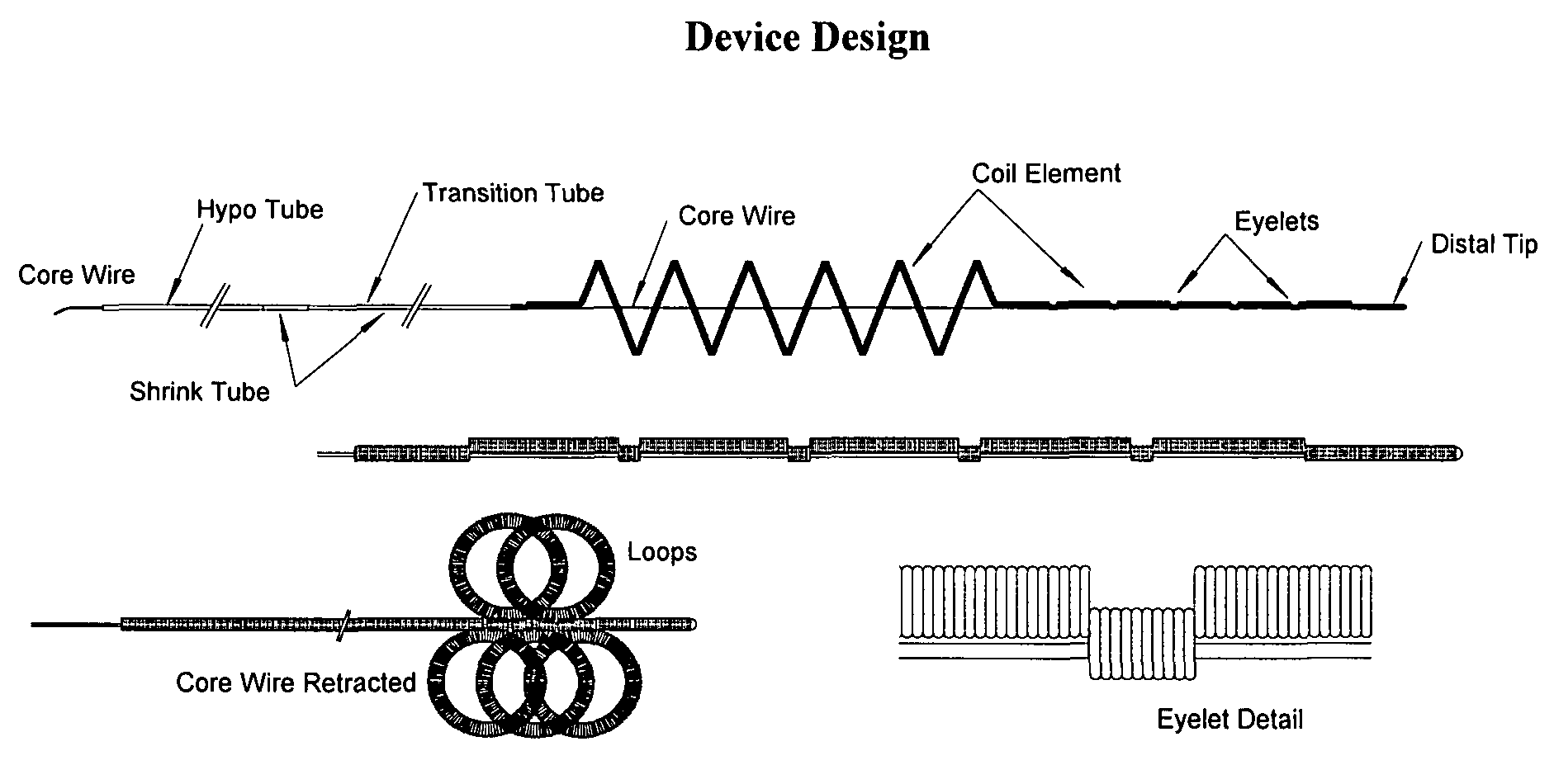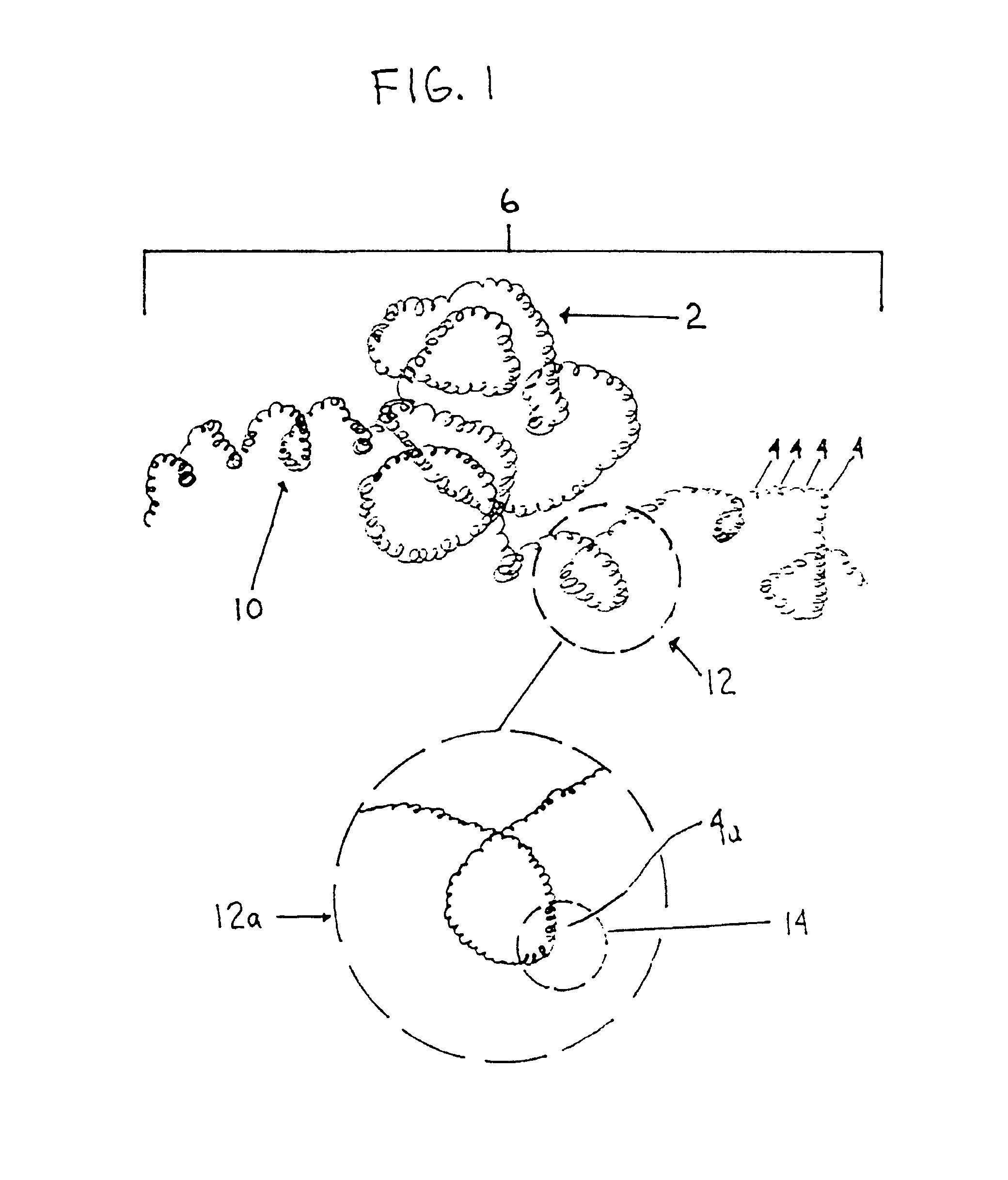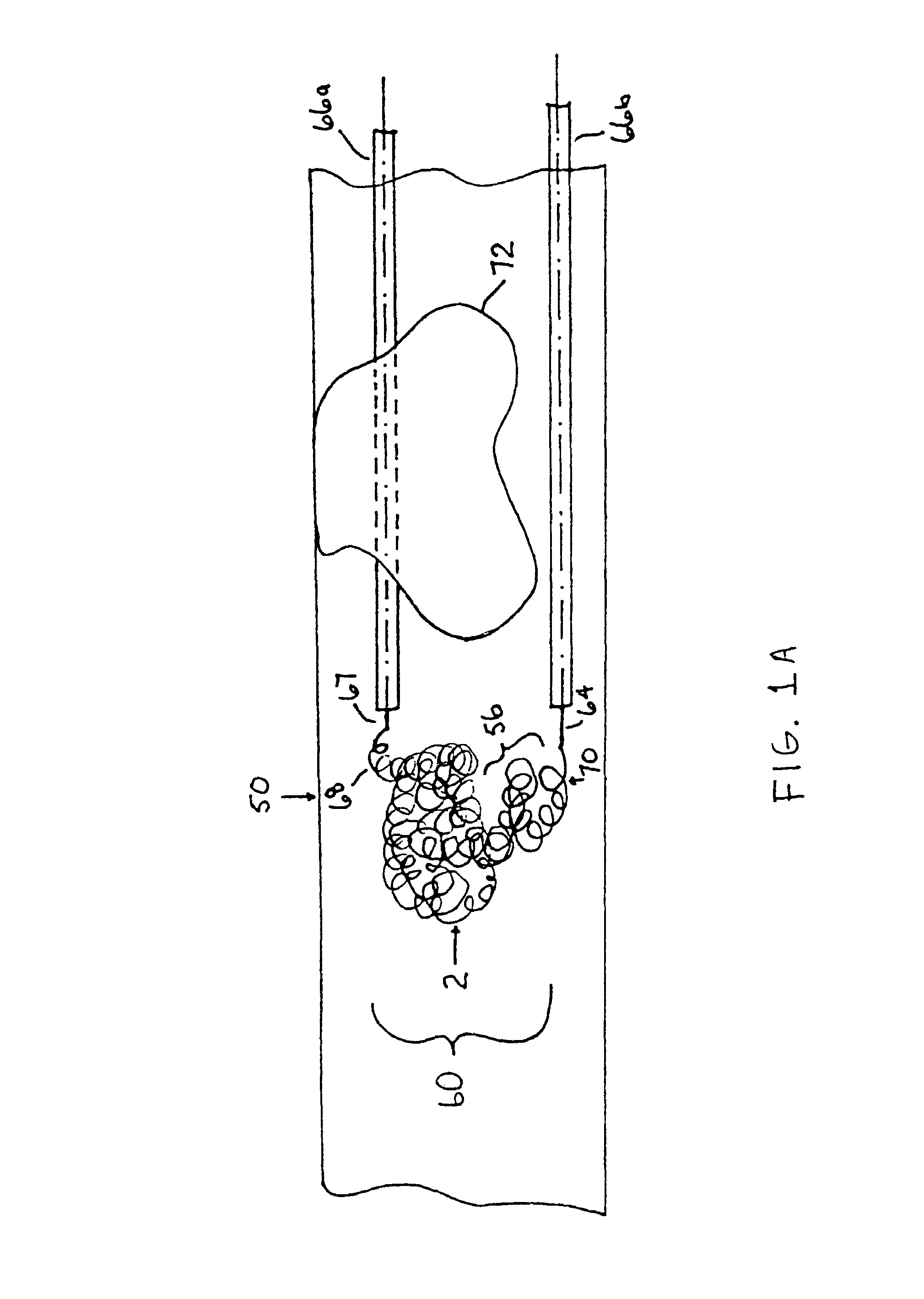Thrombus removal system and process
a thrombus and removal system technology, applied in the field of intravascular medical devices, can solve the problems of serious tissue damage, clots may occasionally be harmlessly dissolved, and clots may lodge in blood vessels or embolize, so as to facilitate the engagement of the thrombus
- Summary
- Abstract
- Description
- Claims
- Application Information
AI Technical Summary
Benefits of technology
Problems solved by technology
Method used
Image
Examples
Embodiment Construction
[0054]The following description should be read with reference to the drawings wherein like reference numerals indicate like elements throughout the several views. The detailed description and drawings illustrate example non-limiting specific embodiments of the generic claimed invention.
[0055]FIG. 1 shows a structural material 2 that can be used as a soft coil capture element in the practice of the technology described herein. The material 2 has microcoils or microloops forming a continuing chain 6 of microcoils that form the macrocoil or macrohelix 10. The term ‘microcoil’ as used herein should not be confused with the RF or MRI responsive coils or microcoils that are used in the medical imaging art. The microcoils of the present invention are small coils compared to the macrocoils 10 which are large coils. The microcoils are made from the structural material (such as metal, polymeric or composite filament or wire) that forms the filaments, threads, fibers, or the like that are used...
PUM
 Login to View More
Login to View More Abstract
Description
Claims
Application Information
 Login to View More
Login to View More - R&D
- Intellectual Property
- Life Sciences
- Materials
- Tech Scout
- Unparalleled Data Quality
- Higher Quality Content
- 60% Fewer Hallucinations
Browse by: Latest US Patents, China's latest patents, Technical Efficacy Thesaurus, Application Domain, Technology Topic, Popular Technical Reports.
© 2025 PatSnap. All rights reserved.Legal|Privacy policy|Modern Slavery Act Transparency Statement|Sitemap|About US| Contact US: help@patsnap.com



